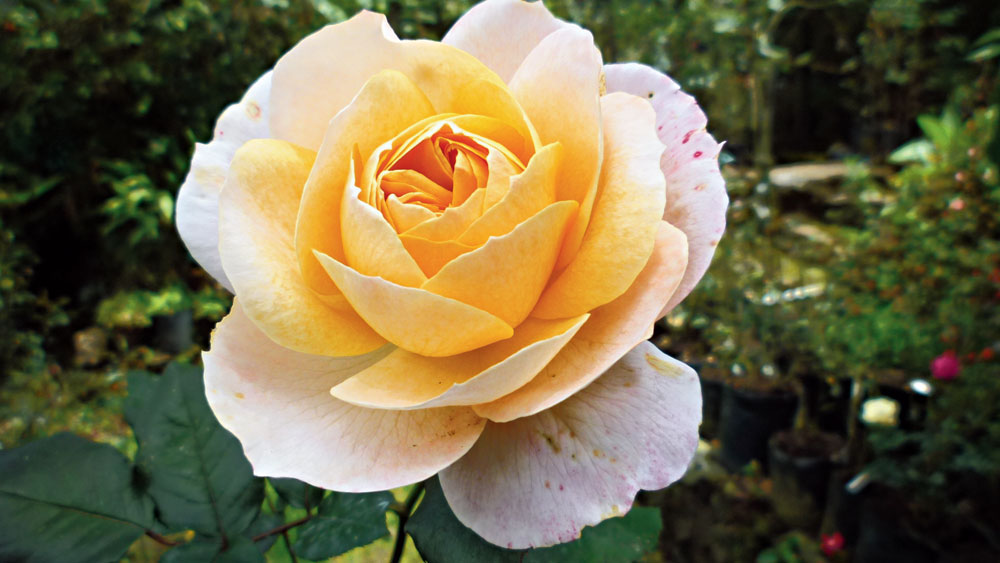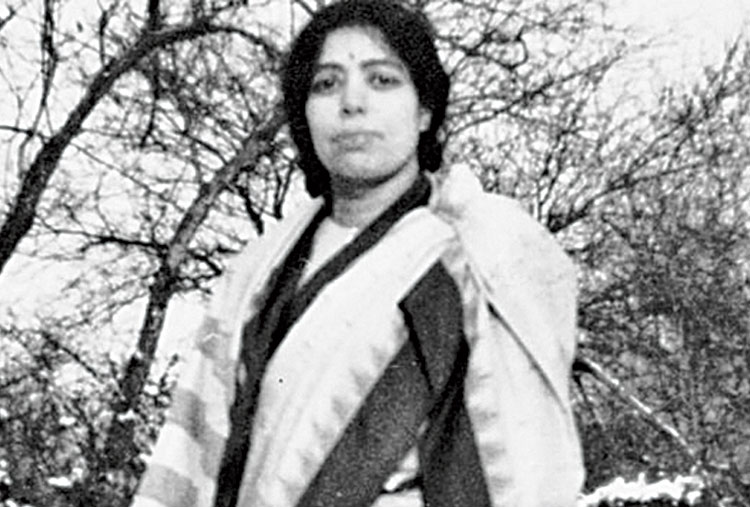Two top plant breeders have on World Environment Day named a new hybrid rose after E.K. Janaki Ammal, India’s first woman botanist who was instrumental in restructuring Calcutta’s Botanical Survey of India in 1951 on the request of then Prime Minister Jawaharlal Nehru.
On Wednesday, England’s John Innes Centre and the Royal Horticultural Society announced that celebrated plant breeders Girija and Viru Viraraghavan, who hail from Kodaikanal, had named the rose “E.K. Janaki Ammal”.
“To celebrate her remarkable career and contribution to plant science, two Indian plant breeders, Girija and Viru Viraraghavan, have bred a new rose, which they have named ‘E.K. Janaki Ammal’,” Andrew Lawn, a senior specialist at the John Innes Centre and the Sainsbury Laboratory, said in an exclusive e-mail interaction.

The new rose named after Janaki Ammal Picture courtesy: John Innes Centre and The Sainsbury Laboratory, England
The Kerala-born Janaki, who passed away in 1984, was an assistant cytologist at the John Innes Horticulture Institute between 1940 and 1945.
The couple said the Rosa clinophylla seedling, which they had tested for many years, had flowered in a medium dark rich yellow. The Viraraghavans said they had heard that Janaki wore saris of only that colour in her later years.
Lawn said: “The plant breeders… thought that it would be befitting to name it after her.”
“There are very few roses bred from Rosa clinophylla and it would be an apt choice for a rose to be named after Janaki Ammal, who was a pioneer in her own field. Incidentally, Rosa clinophylla is perhaps the world’s only tropical rose species and the centre of its natural distribution is India,” he said.

Janaki Ammal Picture courtesy: John Innes Centre and The Sainsbury Laboratory, England
“We have sent material of this rose for more plants to be propagated so that they can be planted in the gardens of the institutions she worked in — the John Innes Institute and the Royal Horticultural Society’s gardens in Wisley, and in the Botanical Survey of India’s gardens in Calcutta,” Lawn added.
Janaki, whose immense contribution to the field of cytology is little known outside academic and scientific circles in India, was instrumental in adding sweetness to sugarcane varieties as head of experiments at Coimbatore’s Sugarcane Breeding Station. She had also extensively studied the chromosomes of thousands of species of flowering plants in the Chromosome Atlas of Cultivated Plants, which she co-authored with biologist C.D. Darlington.
Janaki worked for the John Innes Horticulture Institute when German planes were bombing London during the Second World War. She used to tell her friends how she dived under her bed during the night bombings and then continued with her research work the next day.
“We had always wondered about the person Janaki Ammal and her astonishing and remarkable history, going all the way back to May 1966 when Viru began breeding roses and bought a copy of the Chromosome Atlas of Cultivated Plants,” Girija said.
The couple feel that “enough recognition had not been given to this pioneering woman scientist of our country, who practically died in oblivion, despite her mammoth botanical research, so we felt that we would like to honour her by naming a rose in her name”.











